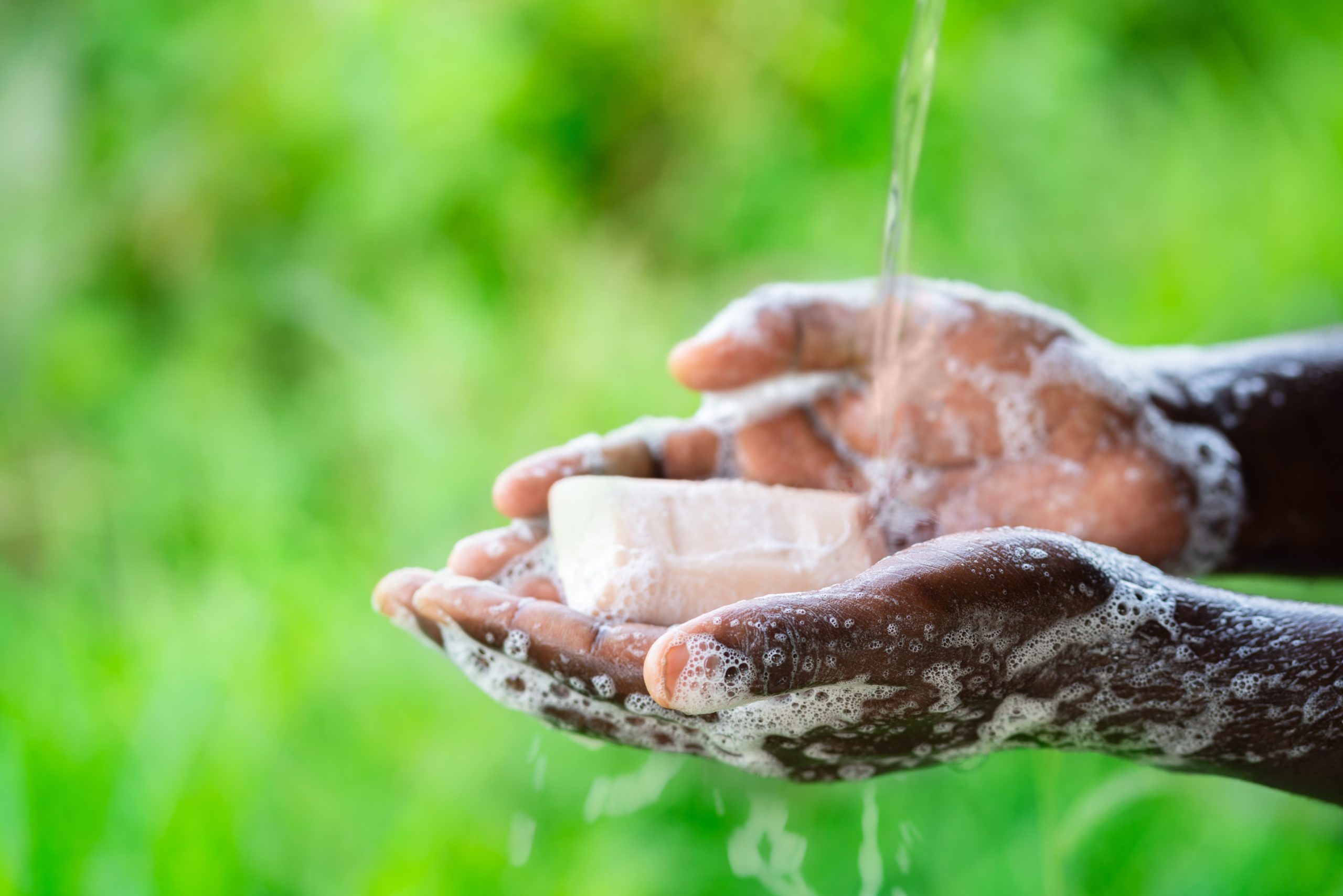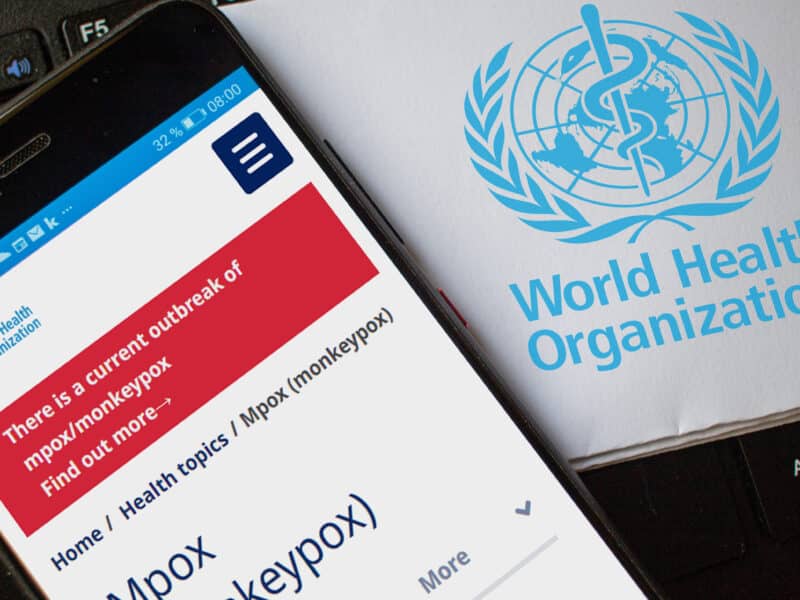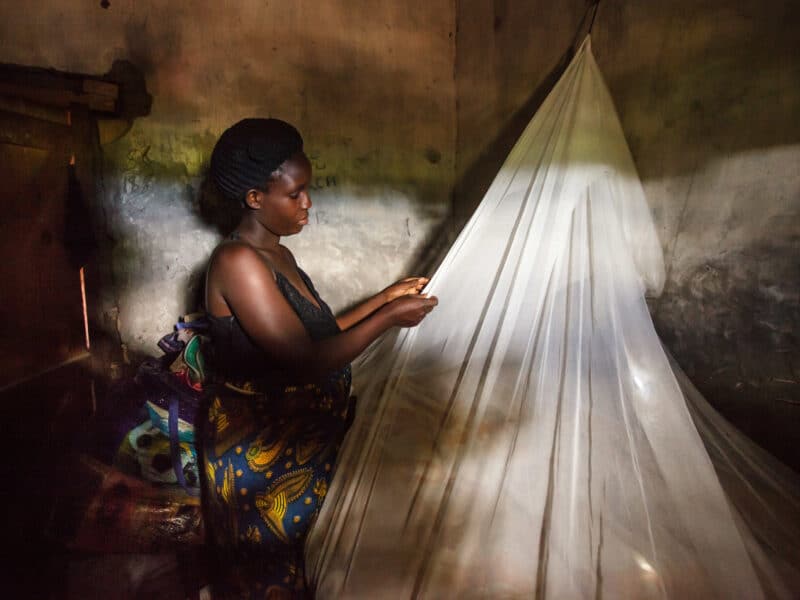Despite public health officials’ understanding that regular handwashing with soap and water can reduce the spread of COVID-19, handwashing rates fell during the pandemic across 10 sub-Saharan countries between July and late November 2020, new Johns Hopkins Center for Communication Programs research finds.
The findings, published Nov. 12 in PLOS Global Public Health, found that the prevalence of handwashing for COVID-19 prevention declined significantly across regions and in each country, from a 14-percentage point drop in Tanzania over the study period to a three-percentage point decline in South Africa. During this time, the number of COVID-19 cases in Africa and around the world increased dramatically. According to Johns Hopkins University, more than five million deaths worldwide can now be attributed to COVID-19, which has sickened more than 242 million people.
The researchers say the decline in handwashing may be the result of public health campaigns heavily promoting other COVID-19 prevention measures – most notably, wearing face masks and physical distancing – and not giving enough attention to the value of handwashing. They also suggest that people in many parts of developing countries may not have access to handwashing stations and running water, a broader issue since handwashing is known to reduce many more diarrheal and infectious diseases than just COVID-19.
“Structural and behavioral issues are at play here,” says CCP’s Bolanle Olapeju, MBBS, PhD, who led the research. “Educating people on the value of handwashing is ineffective if they don’t have access to handwashing stations.”
The data analyzed comes from the KAP COVID study, implemented in a collaboration among CCP, the Massachusetts Institute of Technology, the World Health Organization and Facebook’s Data for Good. Participants were recruited via Facebook and included hundreds of thousands of individuals from 67 countries through March 2021. A new COVID Behaviors Dashboard containing data from a different survey of more than 18 million respondents around the world was launched by CCP in September.
The researchers examined data from 10 sub-Saharan countries represented in the KAP COVID study.
They found that those who were more likely to wash their hands included older, more educated people, women, and those who knew someone who had been diagnosed with COVID-19. Handwashers were more likely to believe that handwashing is effective in preventing COVID-19 or that they could take action to protect themselves against COVID-19.
Of the countries in the study – Angola, Côte d’Ivoire, Ghana, Kenya, Mozambique, Nigeria, Senegal, South Africa, Tanzania and Uganda – settings where access to handwashing stations is lowest (such as Angola or Kenya) or where handwashing was most infrequent (such as Tanzania) have the greatest opportunity for improvement but require distinct, customized approaches to support handwashing effectively and sustainably.
These differences underpin the COVID-19 pandemic’s varied impact on populations and countries across sub-Saharan Africa. This is reflected in the contrasting pandemic responses in study countries, from Tanzania – where communication about COVID-19 prevention was limited – to South Africa, where the government has actively implemented public health interventions to reduce transmission.
Olapeju says it is also hard to discount the role of pandemic fatigue as a reason for reductions in handwashing.
“People are exhausted and perhaps not as likely to be as assiduous with prevention measures as they were at the beginning of the pandemic,” she says. “It’s imperative that we need to find ways to cut through that and remind people how important it still is to wash their hands, wear face masks and physical distance from one another.”
“Trends in handwashing behaviours for COVID-19 prevention: Longitudinal evidence from online surveys in 10 sub-Saharan African countries” was written by Bolanle Olapeju, Zoé Mistrale Hendrickson, Joseph G. Rosen, Dominick Shattuck, J. Douglas Storey, Susan Krenn, Marla Shaivitz, Elizabeth Serlemitsos, Tuo-Yen Tseng, Samantha W. Tsang, Rajiv N. Rimal and Stella Babalola. Funding for the research comes from by Facebook and was facilitated through a gift from Facebook’s Data for Good project





